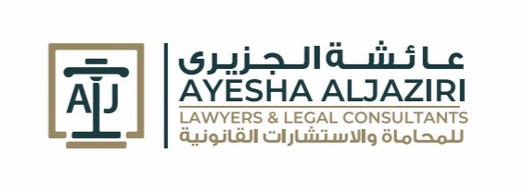Ayesha Aljaziri Lawyers & Legal Consultants is a premier, full-service law firm in Dubai supporting expatriates and families across the UAE with clear, trusted legal solutions. As experienced lawyers in Dubai with full rights of audience before all UAE courts (civil, Sharia, commercial, and appellate), we guide clients through every stage of estate and inheritance planning—drafting valid wills, advising on guardianship, and coordinating cross-border considerations. Our multilingual team provides practical, step-by-step support so your wishes are documented properly and your loved ones are protected.
- For expats, UAE inheritance outcomes depend on the interaction of Sharia-based default rules and available planning tools (including registered wills); understanding both is essential.
- Registering an enforceable will, specifying guardianship for minor children, and documenting assets clearly are the foundation of an effective estate plan in Dubai and the wider UAE.
- Because estates often span multiple countries, coordinated legal advice helps align your UAE plan with home-country rules and avoid conflicts, delays, or disputes.
Why Inheritance Planning Matters for Expats in the UAE
For expatriate families, inheritance planning is more than paperwork—it is the mechanism that protects dependants, streamlines asset transfers, and minimizes the risk of disputes. The UAE’s framework includes Sharia-derived inheritance rules by default, but non-Muslim expats can typically shape outcomes by preparing a compliant will and making clear elections where permitted. Without planning, the distribution of property may follow default shares that differ from many Western systems; with planning, you can express your wishes in a way that is recognized locally.
Beyond distribution, a comprehensive plan addresses practical needs: naming an executor, choosing guardians for minor children, recording how property should be handled, and ensuring your plan is usable in the UAE courts. Our UAE court representation team appears before all court levels, ensuring continuity from drafting to probate if court proceedings are required.
Understanding the Role of Sharia and Elective Options
Default Rules and Fixed Shares
Sharia-based inheritance rules use fixed shares for qualifying heirs. These are designed to balance the interests of spouses, children, and extended family. In broad terms, shares for spouses and children are set by law rather than purely by personal choice. Where a will is absent or invalid, or where assets are not covered by elective mechanisms, the default shares typically apply.
What This Means for Non-Muslim Expats
Non-Muslim expatriates often wish to allocate assets differently from the default scheme—for example, equalizing shares among children or making specific bequests. In many circumstances, a properly prepared and registered will can allow non-Muslim expats to direct the distribution of their UAE assets in line with their wishes, subject to local formalities. Because personal status rules evolve, and because families frequently hold property in more than one jurisdiction, individual advice is crucial. Our litigation lawyers in Dubai routinely resolve inheritance-related conflicts and help clients anticipate issues before they arise.
Legal Frameworks Expats Should Know
Personal Status and Civil Law Considerations
UAE inheritance outcomes are shaped by a combination of personal status rules, civil law provisions, and court practice. Several emirates also have court systems and registries where wills may be registered. The practical takeaway is simple: a will that meets UAE formalities, is clear about governing law (where permitted), and is registered with the appropriate authority gives your executor a reliable roadmap.
Local Variations Across Emirates
Processes can differ between emirates, including where and how wills are registered and how probate is administered. In Dubai, for example, expats often register wills through recognized local channels to streamline future court procedures. In Abu Dhabi or other emirates, documentation and court steps may vary. Because of this variation, selecting a firm with end-to-end capability across the UAE is essential. Our multilingual lawyers advise on emirate-specific requirements and coordinate filings so your plan is practical wherever your assets are located in the UAE.
Wills for Expats: Structure, Content, and Registration
Core Elements of a Valid Will
A strong will for UAE purposes should: (1) clearly identify you and your family, (2) describe your assets and how they should be distributed, (3) appoint an executor with appropriate authority, (4) nominate temporary and permanent guardians for minor children, and (5) comply with local execution and witnessing requirements. Clarity reduces the chance of delays or court interpretation issues, especially where assets are in multiple jurisdictions.
Registration and Practical Steps
Registration requirements typically include proof of identity and status, properly executed documents, and payment of applicable fees. The exact process depends on the registry and emirate. Because requirements can change and because every family’s structure is unique, we recommend a short, structured consultation to confirm the right path and prepare documentation correctly the first time. Our team coordinates translations where needed and ensures all formalities are met by the correct authority.
Asset Distribution: Spouses, Children, and Real Property
Protecting Spouses and Children
Where Sharia-based shares apply, spouses and children are recognized beneficiaries with defined rights. Where a non-Muslim expat relies on a registered will, it is often possible to set a different pattern—such as equal shares among children, specific gifts to a spouse, or provisions for dependants with special needs. Guardianship nominations are especially important for families with minor children; without clear directions, decision-making may default to the court’s assessment under applicable rules.
Real Estate, Bank Accounts, and Cross-Border Assets
Real estate located in the UAE is generally governed by UAE rules, so clarity in your will and alignment with title documents are critical. For bank accounts and investments, institutions may require probate documentation or certified copies of the will. Where assets exist both inside and outside the UAE, coordination between jurisdictions avoids conflicting outcomes. Our real estate lawyers in Dubai and private client team work together so property transfers are executable, lender consents are managed, and timelines are realistic.
Planning Strategies That Work in Practice
Inventory, Beneficiaries, and Executors
Start with a plain-language inventory of UAE and overseas assets—real property, bank accounts, vehicles, investments, and business interests. Then, decide who should receive what and in what proportions. Where you want to treat children equally or make specific gifts to a spouse, document it expressly. Choose an executor who is organized, available in the region when needed, and prepared to liaise with the courts and banks.
Guardianship and Care Provisions
If you have minor children, include immediate (temporary) and long-term guardianship nominations. Detail practical instructions, such as schooling preferences or access to funds for care. These provisions should be consistent with your home-country documentation to avoid contradictions during a stressful time for your family.
Dispute Prevention and Resolution
Many inheritance disputes arise from ambiguity or conflicting documents across countries. Clear drafting, consistent nominations, and correct registration help prevent litigation. Where disagreements do arise, our firm can appear before any UAE court and engage in negotiation, mediation, or arbitration as needed. If a contract or shareholder arrangement intersects with your estate plan, our corporate lawyers in Dubai and arbitration lawyers help align the legal documents so your wishes are actually carried out.
FAQs: UAE Inheritance Law for Expats
Do I need a will if I live in the UAE?
Yes—especially for non-Muslim expats. A locally compliant, registered will gives your executor clear authority and reduces the chance that default rules will govern your estate contrary to your intentions.
Can I choose the law that governs my will?
In many cases, non-Muslim expats can elect a governing law for their will or specify how UAE assets should pass, provided the will is validly executed and properly registered. The precise mechanism depends on your circumstances and the relevant registry; we will confirm the best route during your consultation.
How do UAE courts handle foreign wills and multi-jurisdiction estates?
Courts focus on validity, clarity, and proper authentication. If your estate spans multiple countries, it is vital that your UAE plan aligns with home-country documents to avoid contradictory outcomes. Our dispute resolution team coordinates cross-border strategy and handles court appearances throughout the UAE.
Is there inheritance tax in the UAE?
The UAE does not levy inheritance tax. However, your estate may have tax exposure in other countries. Coordinated advice helps you understand any overseas estate or succession taxes that could apply and how to plan for them.
What if I own a UAE business or shares in a company?
Company shares and shareholder arrangements should be aligned with your will. Review your memorandum of association, side agreements, and shareholder rights to ensure they support your succession plan. Where needed, we work with you to amend documents and avoid unintended transfers or deadlock.
How Our Dubai Law Firm Supports Your Plan
Ayesha Aljaziri Lawyers & Legal Consultants is a full-service firm with 14+ practice areas, including family law, corporate, real estate, employment, financial services, healthcare, technology, and more. Because we have full rights of audience across all UAE courts, there is no need for external counsel if a probate application, property transfer, or related dispute proceeds to court. Our multilingual team (Arabic, English, and additional languages) delivers clear communication and fast, practical execution throughout Dubai and the wider UAE. Explore related insights on our legal blog, or speak directly with our family lawyers in Dubai for guardianship and succession planning.
Next Steps
If you are an expat in the UAE, the safest path is to formalize your wishes in a valid, registered will, coordinate guardianship nominations, and ensure your plan fits both UAE and home-country realities. We will help you inventory assets, choose executors and guardians, prepare the drafting, manage translations and attestations, and register the documents with the correct authority. Should disputes arise, our courtroom team is ready to represent you at every level. To begin, schedule a consultation with our multilingual lawyers in Dubai—our bespoke advisory packages are designed to move you from uncertainty to a robust, actionable plan.
Start your plan today. Contact Ayesha Aljaziri Lawyers & Legal Consultants for a confidential discussion with experienced UAE inheritance lawyers.
Contact us | Court representation across the UAE | Inheritance dispute resolution








